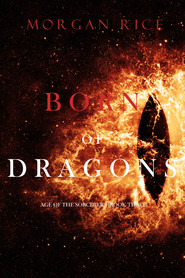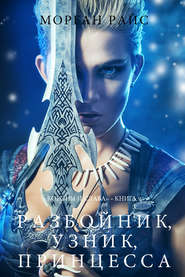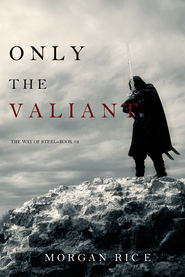По всем вопросам обращайтесь на: info@litportal.ru
(©) 2003-2024.
✖
The Magic Factory
Настройки чтения
Размер шрифта
Высота строк
Поля
“Ah, Oliver, good morning,” came Armando’s voice.
Oliver’s gaze snapped back down to the factory floor. There was Armando, straightening up from where he’d been bent over a machine, tinkering away. Immediately, Oliver lost all courage to ask him whether he could stay on at the factory.
“Did you sleep well?” the old inventor asked.
“I did,” Oliver said. “In fact, better than ever. But it was only supposed to be a nap. Why didn’t you wake me after the storm finished?”
Armando chuckled. “I tried, dear boy, but you were in a deep, deep slumber. My guess is you really needed that sleep.” He smiled. “Now, I promised to tell you all about my factory and my life as an inventor, didn’t I? Would you like some breakfast first? A shower? A clean change of clothes?”
It was only then that Oliver realized he was still wearing pajamas. He hesitated, mulling Armando’s offer over in his mind. Breakfast and a warm shower and clean clothes were not things his parents would offer him if he returned home. It wouldn’t hurt to stay a little longer, he persuaded himself. At least to go on Armando’s tour.
“If it’s your family you’re concerned about, perhaps you ought to call them?” the old inventor added, picking up on his hesitation.
That was the last thing Oliver wanted to do. He just shook his head. “That’s okay. I can go on the tour first.”
The old inventor reached forward and placed a firm but reassuring hand on Oliver’s shoulder. He peered down at him with his misty eyes. Oliver could see the deep kindness and warmth within them. They were trustworthy, imploring him to relax. Not for the first time since arriving at the factory, Oliver got the sense that Armando knew more than he was letting on.
The old man gestured with his arm to the factory floor.
“Please, this way,” he said.
Thoughts of his family shifted to the back of Oliver’s mind as curiosity took over. He walked slowly alongside Armando, matching his pace.
“I was a similar age to you, Oliver,” Armando began, “when I started to make my own inventions. Nothing that worked, mind you.” He chuckled. “I think I managed a mechanical slingshot but that was about it.”
Oliver remember the slingshot he’d created and used on Chris. The coincidence struck him, and the sense of it lingered, mixing with all the other emotions coursing through him.
“I excelled at school,” Armando continued. “Although I didn’t get along very well with any of the children.”
“You and me both,” Oliver added.
They reached a room and Armando strolled inside. It was a library, Oliver saw, with high ceilings and wooden floorboards. A spiral staircase led to a second level where there was a comfy-looking floral armchair and a large reading lamp.
Armando took a book from the shelf beside him. It was a leather-bound tome with the title embossed in gold: Odontodactylus scyllarus.
“I read voraciously,” Armando said. “I wanted to learn about all the laws of physics, about the history of aviation. Everything. I was what you would call a nerd.”
Oliver just nodded. Armando’s story was so similar to his own, it was comforting. He watched Armando wistfully place the book back on the shelf. Then he wandered slowly out of the room. Oliver followed, curiosity driving him on.
“I left school with good grades and went to college,” Armando continued as he walked. “That’s when things really started to pick up for me. I had access for the first time to materials and tools, to workshops, and of course some brilliant mentors. Some of the best minds.”
Suddenly, a swooping mechanical pheasant flew overhead, making Oliver gasp and duck. Its underbelly skimmed Oliver’s head, and Oliver saw it was the same rainbow color as an oil spill. Armando himself didn’t seem too surprised by the intrusion. He kept talking. Oliver straightened up and brushed himself down.
“There was an enthusiasm then for innovation,” Armando was saying. “And the war afforded me a real opportunity. They were willing to take risks on bright minds like mine. I started off inventing things for the war effort, you see.”
He gestured into a room. Oliver saw it was the one with the military tank inside. It had a myriad of bizarre weapons protruding from the front. In the brighter light, Oliver could also see now that there were all kinds of different types of tracks and tires lining the room, some made of rubber, others of metal, others still with sharp spikes upon them.
“They gave me this factory,” Armando said, moving on. “And people to work alongside me.”
“Really?” Oliver asked, a little taken aback. His book had made no real mention of Armando actually having a running factory. He’d been painted as a loon, someone who got caught up in flights of fantasy rather than someone who was trusted to run a factory, and indeed someone who’d been somewhat successful at it.
Armando nodded. “I know. It seems strange to think it now. Now that everything here has become so… quiet.”
He seemed lost for a second in his reverie. But then he snapped back to the moment again and led Oliver slowly onward.
They entered a room filled with glass beakers and bubbling liquids, with little Bunsen burners in a row and large machines making chugging noises. The room was hot and smelled of strange chemicals. Oliver wrinkled his nose at the stench.
“You may have heard the rumors,” Armando said, “that nothing I invented ever worked.”
Oliver felt bad for the old man and blushed on his behalf. “Yes, I did hear that.”
Armando nodded sadly. “They took my team away. Sent them elsewhere, to places they’d be more useful. They closed the factory. Officially anyway. I continued to work here secretly.”
The secret wall! Of course. No wonder this wing of the factory was so odd and hidden away behind the mechanical wall. Armando had had to conceal himself, to keep his work undetected in order to keep going.
“So you’ve been alone here ever since?” Oliver asked.
“Unfunded would be a better word,” Armando said. He sighed, as if there was some kind of heavy weight pressing on him, and tapped his skull with a bony finger. “I have so much knowledge in here and no one to pass it on to. No son or daughter. No apprentice.”
They drew up slowly to a machine. It was just like the large bowl-shaped invention Oliver had first seen in the main factory. But while that one was covered in dust and falling into disrepair, this one looked brand new.
Oliver touched the brass mechanism with his fingertips.
“I call that a Bird’s Eye View,” Armando said.
“What does it do?” Oliver asked.
“It allows you to look down from above at certain locations. It was supposed to help with reconnaissance during the war effort.”
Oliver frowned. “But how does it work? You’d need cameras in the sky. And what’s the bowl for? And this spinny bit? I don’t understand.”
He mulled it over. Perhaps it was something to do with electromagnetic currents passing through the raindrops in clouds, causing some kind of image in much the same way as an ultrasound, or how blind bats use sonar to see. But even that was too out there for Oliver to accept. Really, the only way something like that could ever work was through some kind of undiscovered physical force. Some kind of magic.
Armando let out a morose smile. “It never did work. There was always a missing ingredient. With every single one of my big inventions, there was always just one thing missing.”
Oliver wondered what Armando meant by that. What could the missing ingredient he was alluding to be?
He realized then that Armando had carried on ahead. Oliver rushed to catch up.
“So you’ve been making inventions for seventy years?” he asked.
“And counting,” Armando replied.
“They didn’t send you to fight after they shut down the factory?”
Armando made a little face of distaste. “I was supposed to be drafted like everyone else. But the government wanted me to try to finish my grand invention. One that would be incredibly useful to the war effort. They gave me one last chance to make it work.”
“What was it?” Oliver asked. He remembered the pages of his inventors book. They’d mentioned that Armando was working on a time machine before the war had stalled his efforts. Was that what he meant?

















